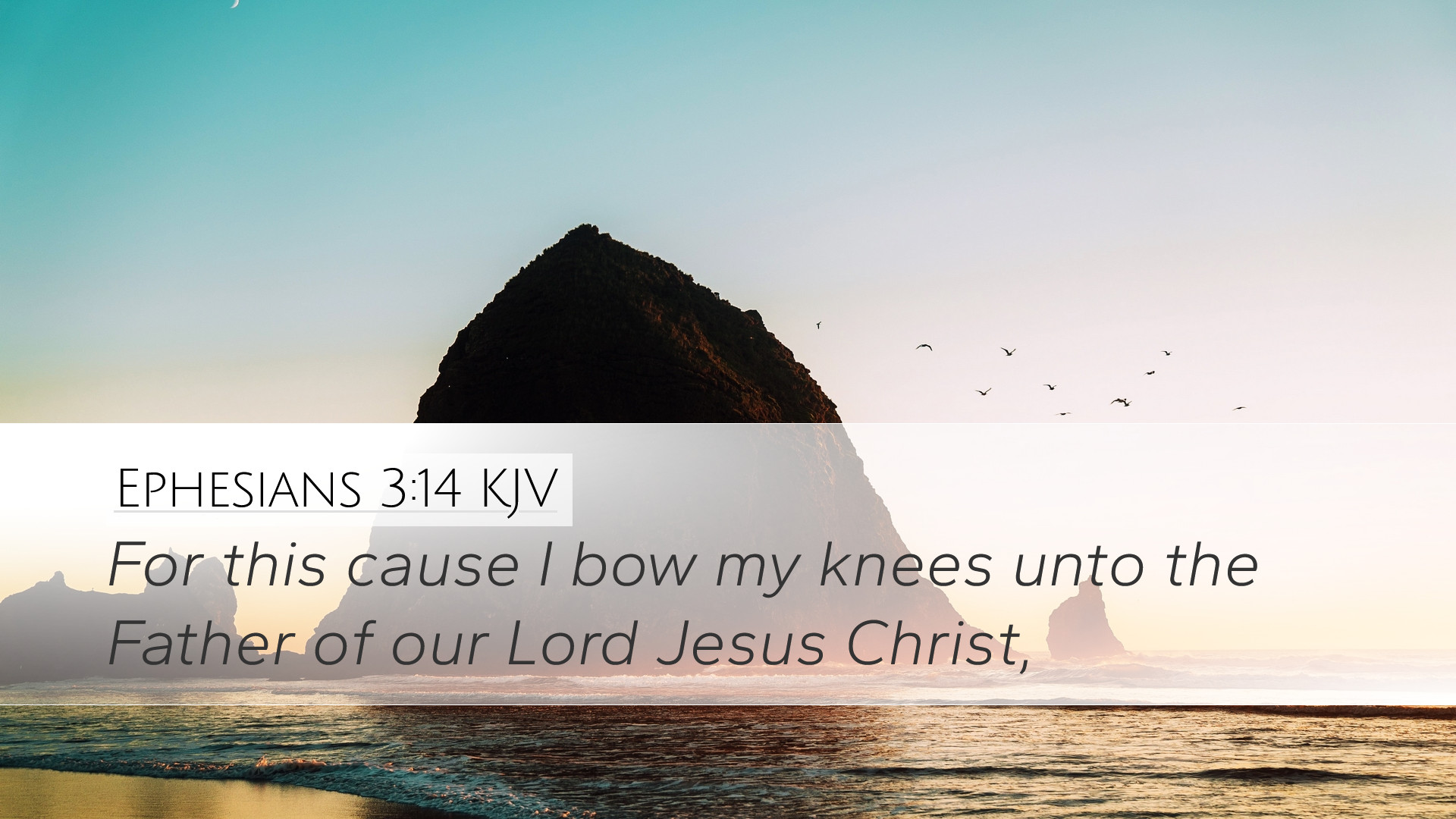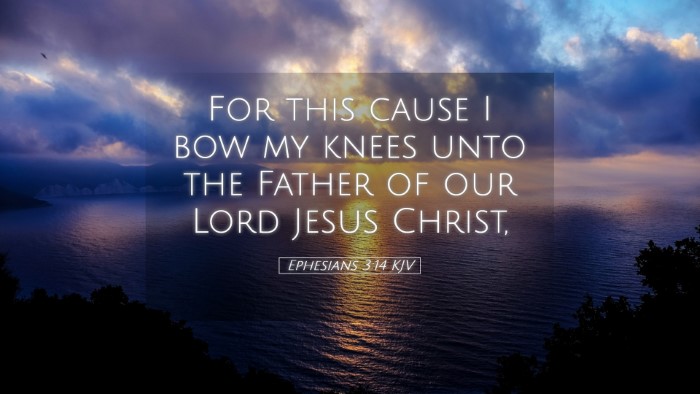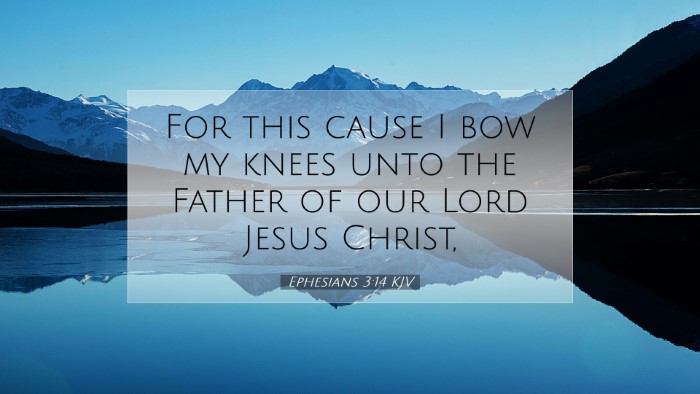Ephesians 3:14 - Commentary and Insights
Introduction
Ephesians 3:14 states, "For this reason I bow my knees before the Father," (ESV). In this verse, the Apostle Paul explicitly expresses his posture of reverence and dependence in prayer, seeking to convey the significance of approaching God with humility. This commentary draws from the insights of noted theologians such as Matthew Henry, Albert Barnes, and Adam Clarke to explore the depth of meaning contained within this passage.
The Context of Ephesians
The Epistle to the Ephesians is a profound letter that emphasizes the theological implications of the church as the body of Christ. The preceding chapters focus on the church's purpose, the unification of believers, and the richness of God's grace. In Ephesians 3, Paul presents his divine task as a servant to the Gentiles, underscoring the mystery of the Gospel. This humility sets the groundwork for the heartfelt prayer in verse 14.
Commentary on Ephesians 3:14
The phrase "For this reason" indicates a transition point in Paul’s thought. It connects his prayer to the previously established themes of enlightenment, unity, and the magnificent grace of God. Paul’s bowing of the knees symbolizes his earnest supplication. The physical posture reflects inner devotion and submission, a theme echoed consistently in Scriptural prayers.
1. Bowing Before the Father
Matthew Henry notes that bowing the knee is an expressive act not merely of humility but also of worship. Henry comments, "We come to God as our Father, and we are to approach him in the spirit of children, having reverence for His authority." This reflects the reverent relationship between the believer and God, emphasizing the importance of recognizing God's position as Sovereign.
Albert Barnes elaborates that the act of bowing indicates a state of submission. He writes, "It is the posture which is appropriate for a sinner in prayer," affirming that in recognizing our own unworthiness, we submit ourselves to the grace and mercy of God.
2. The One Addressed: The Father
The reference to "the Father" is significant in biblical teaching. Adam Clarke emphasizes the familial aspect of this relationship, where God is not a distant deity but a caring Father who desires communion with His children. Clarke reflects on how prayer beginning with "Our Father" establishes a sweet confidence in the heart of believers, inviting them into an intimate relationship with God.
3. The Importance of Prayer in Ephesians
Paul’s prayerful life serves as a model for the Ephesians and, by extension, for us today. Prayer is depicted as the lifeblood of the Christian experience. Matthew Henry states, "Prayer is a means of communicating with God, a means to express our needs and desires." Paul’s bowing illustrates the vital need for reliance on God's strength and guidance.
Theological Implications
Ephesians 3:14 invites believers to consider the broader implications of prayer, humility, and divine sonship. It also opens up an exploration of the themes of grace, revelation, and the communal identity of believers as children of God.
1. The Nature of God as Father
The notion of God as the Father shapes our understanding of divine authority and mercy. Paul emphasizes this relational aspect, where believers are invited into a family dynamic. Clarke notes that this relationship is characterized by love, guidance, and provision.
2. The Role of Prayer in Community
The prayerful life of the community reflects its collective reliance on God. As Paul intercedes for the Ephesians, he models how believers should pray for one another, fostering a spirit of unity and mutual encouragement. Barnes points out that "intercessory prayer is a pathway that enhances the bond within the body of Christ."
3. Humility as a Christian Virtue
The posture of bowing symbolizes the Christian call to humility. Henry remarks, "True humility does not look at itself, but looks to God." Such humility undergirds our spiritual lives and service in the community, allowing us to seek God's will above our own.
Applications for Believers
As we consider Ephesians 3:14, several applications emerge for believers today. These insights can inform both personal devotion and corporate worship.
- Embrace Humility: Approach God in prayer with reverence and humble acknowledgment of His greatness.
- Prioritize Prayer: Create a disciplined prayer life, understanding its critical role in spiritual growth and community.
- Foster Unity: Engage in intercessory prayer for others, building a supportive Christian community characterized by love.
- Deepen Relationship: Recognize God as a loving Father, inviting believers to foster an intimate relationship with Him.
Conclusion
Ephesians 3:14 offers profound truths about the nature of prayer and our relationship with God. The insights from esteemed commentators enhance our understanding of the context, emphasis, and practical applications of this scripture. As we bow our knees before the Father, let us be reminded of our dependence on His grace and the privilege of communion with Him.


